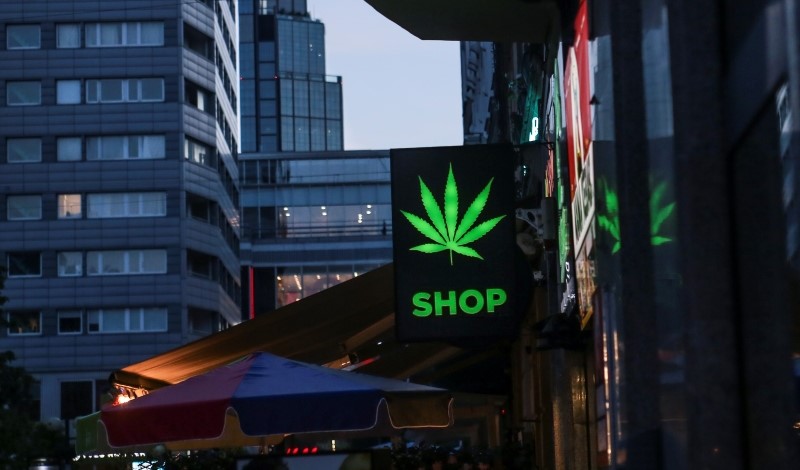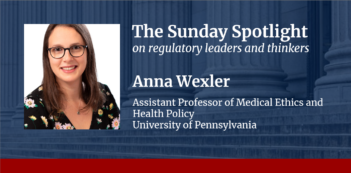
Dispensaries could fill the regulatory void for psychedelics and promote public health.
Several psychedelics are making their way through the regulatory process created by the U.S. Food and Drug Administration (FDA) for new drugs. In the FDA model, psychedelics are unlikely to be prescribed for consumption at home. Rather, patients will likely access psychedelics as part of a therapeutic protocol and consume the medicine under the guidance of medical professionals. One of the goals of this model—called psychedelic assisted psychotherapy—is to create a safe environment for psychedelic use. States that have legalized access to psychedelics have mostly taken the same approach.
In this essay, I argue that regulated psychedelic dispensaries should also be part of the conversation. Creating an on-site consumption model is not an effective form of harm reduction when it is not widely accessible and therefore not widely adopted. Cultural attitudes toward psychedelics are evolving due to promising research about their potential as mental health treatments. Without legal access to match the growing demand for these substances, consumers seek access through an unregulated underground market and may expose themselves to harm. Dispensaries offer a potential solution to this problem.
This problem has increased in salience as psychedelic advocacy and cultural acceptance has gained momentum across the country over the last five years. There has been ongoing tension between efforts to decriminalize possession and cultivation of psychedelics and efforts to regulate psychedelics. Decriminalization efforts have made enforcement of state drug laws criminalizing psychedelics the lowest level law enforcement priority in dozens of cities. These local resolutions and ordinances are more appropriately called deprioritization because local efforts cannot change state criminal law.
In the two states that have legalized access to psychedelics through ballot initiatives, efforts to regulate have mostly won out. In Oregon, ballot Measure 109 passed in 2020, giving the Oregon Health Authority the power to regulate psilocybin services, an exclusively on-site consumption model sometimes also called supported adult-use. In contrast, Colorado’s Natural Medicine Health Act, which passed in 2022, has both a regulated on-site consumption model and a decriminalization of personal possession and social sharing model. Under the law, Coloradans may eventually be able to access four substances—psilocybin, dimethyltryptamine, ibogaine, and mescaline—at state regulated healing centers guided by state licensed facilitators. Shortly after the law passed, Coloradans gained the right to cultivate for personal possession and socially share these substances for noncommercial purposes. The law also allows individuals to be paid for providing therapeutic, harm reduction, or other support services related to the sharing or donating of psychedelic substances.
Unlike cannabis, where consumers and patients buy a regulated product from dispensaries that must be used off-site, state regulated psychedelic proposals mirror FDA’s approach by regulating centers where individuals may only access psychedelics on site. Despite the decriminalization of possession, the Colorado law does not create a way for residents to purchase regulated psychedelics for use at home. In fact, requiring on-site consumption of legal psychedelics has impeded access considerably by producing long waitlists and increasing the cost of psychedelics. Due to the extended length of time of many psychedelic experiences, the thousands of dollars it can cost per session can be mostly attributed to compensating the facilitators.
Individuals who experience mental illness and are searching for relief and hearing about the potential of psychedelic therapy may also fall prey to untrustworthy or, worse, abusive guides. The threat of abuse in psychedelic therapy, particularly sexual abuse, is also prevalent in medicalized settings. The observed increase in suggestibility—that is, the increased potential for an individual to be highly influenced when using psychedelics—only adds to the potential for abuse when access to a substance is tied to a specific therapeutic relationship. When abuse happens in situations where illicit psychedelics are present, there is no potential for oversight or recourse for victims who are afraid of admitting to illegal activity.
Creating dispensaries would address these pressing issues and further the states’ interest in promoting public health by allowing interested consumers to access safely the substances they want. In addition, creating a legal access point for psychedelics would remove a barrier for victims of abuse to report since the substance would be accessed legally. Dispensaries could also create an additional potential revenue source from activity that is already occurring. This additional revenue could help to fund psychedelic regulation and address the issue of funding, which has already come up in Oregon.
But this proposal is not without challenges. As long as psychedelics remain illegal at the federal level, even if certain formulations are rescheduled with FDA approval, limitations on taxes and banking will continue to frustrate the success of state regulated psychedelic access models. There is also no official federal policy of nonenforcement, as exists in the case of medical cannabis.
“Set and setting,” a term commonly used in the psychedelic ecosystem to describe the impact on the patient’s psychedelic experience of both the setting where the medicine is consumed and the mindset of the patient, also poses questions for the dispensary model. If we create psychedelic dispensaries, it may become more difficult to ensure that individuals will use these substances safely. But analyses of psychedelic policy should acknowledge that people are already using these substances. Criminalizing or limiting access to these substances does not mean that people will not use them, it just makes the use less safe.
In addition to decriminalizing drugs, it is important to develop pathways for safe supply. Even if there are negative health effects associated with the use of certain drugs, it is safer for those drugs to be regulated. Our society has accepted this when it comes to tobacco, alcohol, and cannabis. It is time to do the same with psychedelics. While we are at it, maybe we should consider creating pathways for safe supply of all drugs?
This essay is part of a six-part series entitled, Global Perspectives on Psychedelics Regulation.




